Atherosclerosis
How to submit an article:
- Registered users can submit any published journal article that has a unique DOI (Digital Object Identifier) name or link to Research Hub.
- For example, you can paste the full DOI link:
https://doi.org/10.1109/5.771073or just the DOI name:10.1109/5.771073into the field above and click submit. - The person who is first to submit a valid article to Research Hub will forever be credited for it, and every article submission earns you +6 Research Points.
Also known as: Anti-atheroscleriogenic
Related Topics
Published research studies are articles that present the findings of original research that has undergone a peer-review process and has been made publicly available in scholarly journals, books or other media.
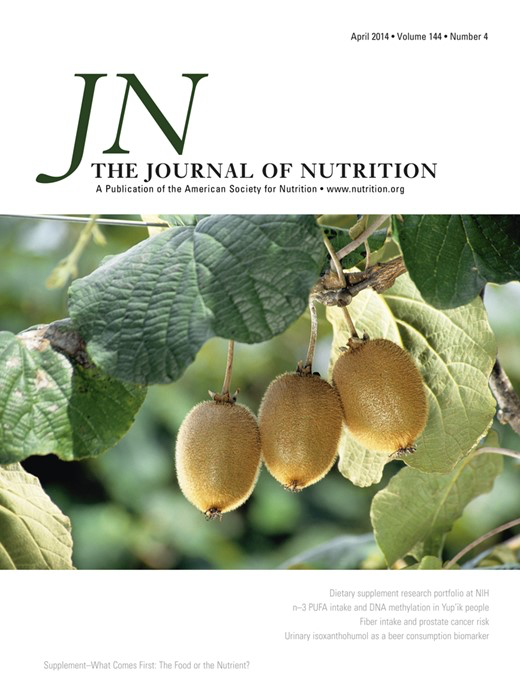
Associations between Metabolomic Biomarkers of Avocado Intake and Glycemia in the Multi-Ethnic Study of Atherosclerosis
2023 Oct The Journal of Nutrition Wood AC, Goodarzi MO, Senn MK, Gadgil MD, Graca G, Allison MA, et al.
Cohort Study Blood SugarAvocado consumption is linked to better glucose regulation, with metabolomic biomarkers of avocado intake showing even stronger associations with lower glycemia.
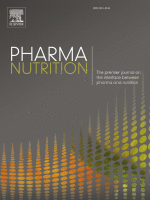
Soy protein, bioactive peptides, and isoflavones: A review of their safety and health benefits
2023 Sep PharmaNutrition Tan ST, Tan SS, Tan CX
Review Article Type 2 Diabetes Soybean Osteoporosis Isoflavone Cholesterol High Blood PressureSoy protein, bioactive peptides, and isoflavones are generally safe for consumption and may help reduce the risk of several significant health conditions.
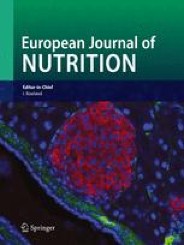
Avocado consumption and markers of inflammation: results from the Multi-Ethnic Study of Atherosclerosis (MESA)
2023 Mar 22 European Journal of Nutrition Cheng FW, Ford NA, Wood AC, Tracy R
Avocado consumption was not found to be associated with levels of inflammatory markers.
Cohort Study Avocado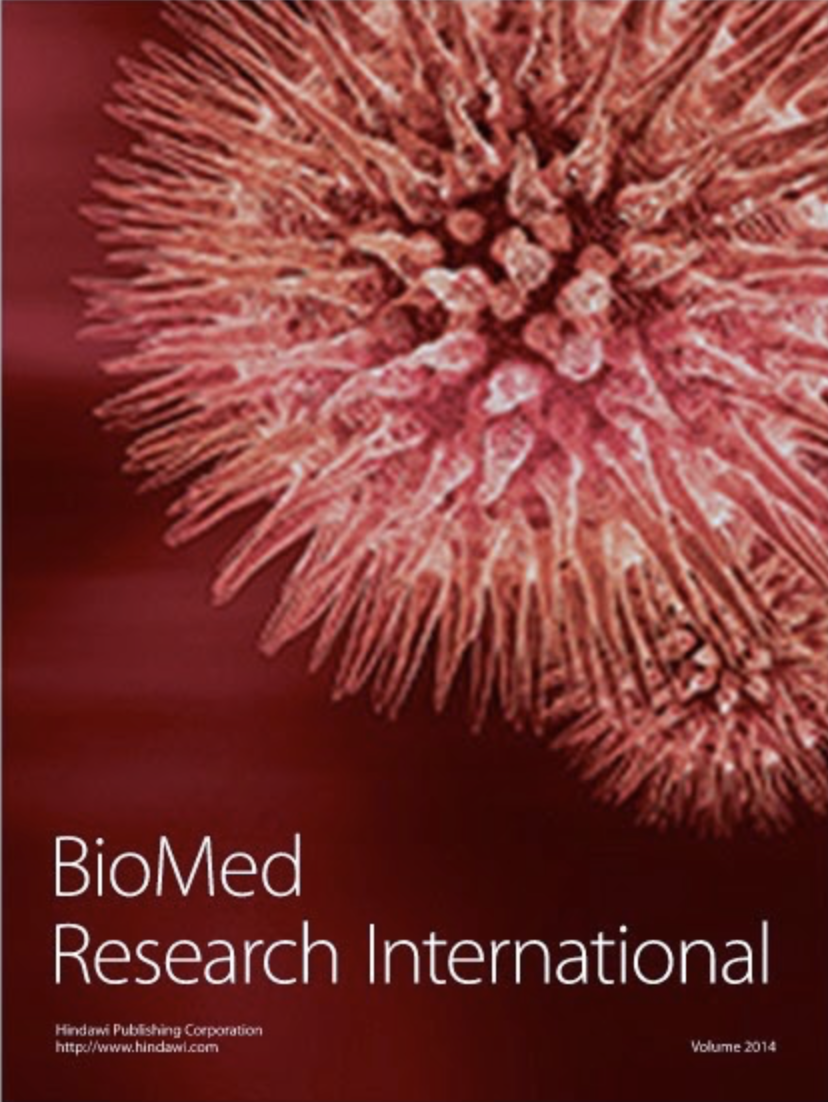
Investigating the Molecular Mechanism of Xijiao Dihuang Decoction for the Treatment of SLE Based on Network Pharmacology and Molecular Docking Analysis
2022 Jan 20 BioMed Research International Wei F, Song Y, Gong A, Pan C, Zhuang Y, Zhang X, et al.
The study identified 30 potential active ingredients and 289 potential targets of XJDHT, with 129 intersection targets between XJDHT and SLE. Network topology analysis revealed 23 core targets, including AKT1, TNF, IL6, IL1B, and INS. GO and KEGG enrichment analyses suggested involvement in processes such as the response to lipopolysaccharide and signaling pathways like lipid and atherosclerosis. Molecular docking confirmed strong binding activity between XJDHT compounds and core targets, providing a theoretical basis for further clinical and experimental studies on XJDHT in treating SLE.
Network Pharmacology Systemic Lupus Erythematosus Xi Jiao Di Huang Decoction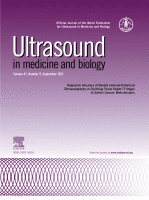
Three-dimensional ultrasound assessment of effects of therapies on carotid atherosclerosis using vessel wall thickness maps
2021 Sep Ultrasound in Medicine & Biology Zhao Y, Spence JD, Chiu B
Randomised Controlled Trial Ultrasound Atherosclerosis PomegranateA new method for assessing the effects of therapies on atherosclerosis shows that pomegranate juice/extract has a significant influence on carotid vessel-wall-plus-plaque thickness.
Research insights are moderated by the Research Hub team and offer an at-a-glance overview of interesting research findings.

2023 The Journal of Nutrition
Avocado consumption is linked to better glucose regulation, with metabolomic biomarkers of avocado intake showing even stronger associations with lower glycemia.
Cohort Study Blood Sugar
Associations between Metabolomic Biomarkers of Avocado Intake and Glycemia in the Multi-Ethnic Study of Atherosclerosis
Wood AC, Goodarzi MO, Senn MK, Gadgil MD, Graca G, Allison MA, et al.

2023 PharmaNutrition
Soy protein, bioactive peptides, and isoflavones are generally safe for consumption and may help reduce the risk of several significant health conditions.
Review Article Cholesterol High Blood Pressure Isoflavone Osteoporosis Soybean
Soy protein, bioactive peptides, and isoflavones: A review of their safety and health benefits
Tan ST, Tan SS, Tan CX

2021 Ultrasound in Medicine & Biology
A new method for assessing the effects of therapies on atherosclerosis shows that pomegranate juice/extract has a significant influence on carotid vessel-wall-plus-plaque thickness.
Randomised Controlled Trial Pomegranate Ultrasound
Three-dimensional ultrasound assessment of effects of therapies on carotid atherosclerosis using vessel wall thickness maps
Zhao Y, Spence JD, Chiu B
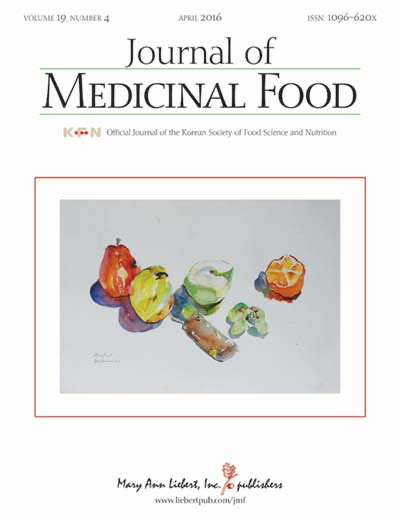
2020 Journal of Medicinal Food
Daily consumption of tart cherry juice may reduce processes involved in accelerated atherogenesis, potentially decreasing the risk of cardiovascular diseases.
Randomised Controlled Trial Atherogenesis Cardioprotective Effects Cardiovascular Disease Cherry LDL
Effects of Montmorency Tart Cherry Juice Consumption on Cardiometabolic Biomarkers in Adults with Metabolic Syndrome: A Randomized Controlled Pilot Trial
Johnson SA, Navaei N, Pourafshar S, Jaime SJ, Akhavan NS, Alvarez-Alvarado S, et al.

2012 Evidence-Based Complementary and Alternative Medicine
Pomegranate polyphenols have notable antioxidant and antiatherogenic effects that lessen cholesterol, oxidized lipids accumulation, and atherosclerosis development in arterial macrophages.
Experimental Study Pomegranate
Pomegranate Protection against Cardiovascular Diseases
Aviram M, Rosenblat M
Review Articles
Review articles summarise and critically evaluate the current state of research on a specific topic or field by synthesising multiple primary research studies.

Soy protein, bioactive peptides, and isoflavones: A review of their safety and health benefits
2023 Sep PharmaNutrition Tan ST, Tan SS, Tan CX
Review Article Type 2 Diabetes Soybean Osteoporosis Isoflavone Cholesterol High Blood PressureSoy protein, bioactive peptides, and isoflavones are generally safe for consumption and may help reduce the risk of several significant health conditions.

Chinese Herbal Medicines and Active Metabolites: Potential Antioxidant Treatments for Atherosclerosis
2021 May 13 Frontiers in Pharmacology Song L, Zhang J, Lai R, Li Q, Ju J, Xu H
Oxidative stress is a critical component in the progression of atherosclerosis. Therefore, it is essential to develop medications or supplements to treat atherosclerosis from the perspective of enhancing antioxidant enzyme induction, inhibiting ROS generation, or blocking subsequent reactions, such as inhibition of inflammation process; all of these form vicious cycles in oxidative stress.
Review Article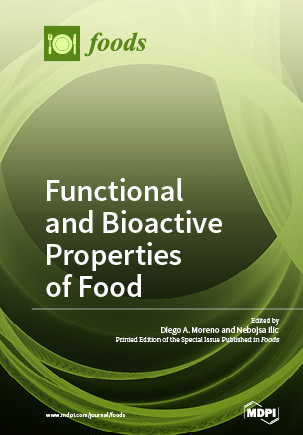
The Pharmacological Effects and Health Benefits of Platycodon grandiflorus—A Medicine Food Homology Species
2020 Jan 31 Foods Ji MY, Bo A, Yang M, Xu JF, Jiang LL, Zhou BC, et al.
The herb is commonly used in the development of food products (cold mixed vegetables, canned vegetables, preserved fruit, salted vegetables) and cosmetics in northeast China, South Korea, Japan, and Korea. The review highlights the active chemical components and health benefits of Platycodon grandiflorus, suggesting its potential for developing nutraceutical products to prevent and manage chronic diseases.
Review Article Atherosclerosis High Blood Pressure Cough Inflammation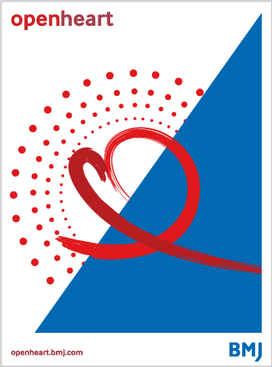
Importance of maintaining a low omega–6/omega–3 ratio for reducing inflammation
2018 Nov Open Heart DiNicolantonio JJ, O’Keefe JH
The study concludes that omega-3 PUFAs, specifically eicosapentaenoic acid (EPA) and docosahexaenoic acid (DHA), exhibit anti-inflammatory effects by reducing markers of inflammation, adhesion molecules, and atherosclerosis-related factors, contrasting with the proinflammatory effects associated with omega-6 PUFAs, particularly LA.
Experimental Study Systematic Review Inflammation Omega-6 Omega-3 Ratio
Omega-6 vegetable oils as a driver of coronary heart disease: the oxidized linoleic acid hypothesis
2018 Sep 26 Open Heart DiNicolantonio JJ, O’Keefe JH
The study concludes that elevated levels of linoleic acid, particularly from omega-6-rich vegetable oils, are positively associated with increased prevalence of diabetes, obesity, asthma, and coronary artery disease. The findings propose a comprehensive theory, the 'oxidised linoleic acid theory of coronary heart disease,' highlighting the role of linoleic acid in initiating the oxidation process of LDL particles, leading to atherosclerosis and cardiovascular risk. The study also suggests the potential use of 9-HODE levels as a novel risk factor for coronary heart disease.
Systematic Review CAD Coronary Artery Disease Linoleic Acid Omega-6 Fatty AcidsClinical Trials
Clinical trials are research studies that involve people and are conducted to evaluate the safety and efficacy of new treatments or interventions, such as drugs, medical devices, or behavioural therapies.

Three-dimensional ultrasound assessment of effects of therapies on carotid atherosclerosis using vessel wall thickness maps
2021 Sep Ultrasound in Medicine & Biology Zhao Y, Spence JD, Chiu B
Randomised Controlled Trial Ultrasound Atherosclerosis PomegranateA new method for assessing the effects of therapies on atherosclerosis shows that pomegranate juice/extract has a significant influence on carotid vessel-wall-plus-plaque thickness.

Effects of Montmorency Tart Cherry Juice Consumption on Cardiometabolic Biomarkers in Adults with Metabolic Syndrome: A Randomized Controlled Pilot Trial
2020 Dec 01 Journal of Medicinal Food Johnson SA, Navaei N, Pourafshar S, Jaime SJ, Akhavan NS, Alvarez-Alvarado S, et al.
Randomised Controlled Trial LDL Cardioprotective Effects Atherogenesis Cherry Cardiovascular Disease Metabolic SyndromeDaily consumption of tart cherry juice may reduce processes involved in accelerated atherogenesis, potentially decreasing the risk of cardiovascular diseases.
Study Protocols
Published study protocols are detailed plans that outline the objectives, methodology, statistical analyses, and organisation of a research study that have been made publicly available for others to review and use as a reference.
Presentation Slides

Cohort Study
Avocado consumption is linked to better glucose regulation, with metabolomic biomarkers of avocado intake showing even stronger associations with lower glycemia.
Wood AC, Goodarzi MO, Senn MK, Gadgil MD, Graca G, Allison MA, Tzoulaki I, Mi MY, Greenland P, Ebbels T, Elliott P, Tracy RP, Herrington DM, Rotter JI

Review Article
Soy protein, bioactive peptides, and isoflavones are generally safe for consumption and may help reduce the risk of several significant health conditions.
Tan ST, Tan SS, Tan CX

Randomised Controlled Trial
A new method for assessing the effects of therapies on atherosclerosis shows that pomegranate juice/extract has a significant influence on carotid vessel-wall-plus-plaque thickness.
Zhao Y, Spence JD, Chiu B

Randomised Controlled Trial
Daily consumption of tart cherry juice may reduce processes involved in accelerated atherogenesis, potentially decreasing the risk of cardiovascular diseases.
Johnson SA, Navaei N, Pourafshar S, Jaime SJ, Akhavan NS, Alvarez-Alvarado S, Proaño GV, Litwin NS, Clark EA, Foley EM, George KS, Elam ML, Payton ME, Arjmandi BH, Figueroa A

Experimental Study
Pomegranate polyphenols have notable antioxidant and antiatherogenic effects that lessen cholesterol, oxidized lipids accumulation, and atherosclerosis development in arterial macrophages.
Aviram M, Rosenblat M
Executive Summary
Write an executive summary in the form of a blog article on the topic of "Research into Chinese medicine treatment for Atherosclerosis" summarising the research below and using language that can be easily understood by patients and avoiding medical jargon using a professional and caring tone of voice.
Write an executive summary in the form of a blog article on the topic of "Researched Chinese medicine treatments for Atherosclerosis" summarising the research below in an objective and easy to understand way, and using language that can be easily understood by patients. Group the article into Chinese medicine treatments first, followed by nutrition and other treatments. Avoid using medical jargon and use a professional and caring tone of voice.
Write me a concise but easy to understand executive summary on the topic of "Chinese medicine treatments for Atherosclerosis" based on the following research that I will give you. Your summary should be 2 paragraphs long in Australian English spelling and include references to the studies.
A Cohort Study published in 2023 in the journal The Journal of Nutrition found that Avocado consumption is linked to better glucose regulation, with metabolomic biomarkers of avocado intake showing even stronger associations with lower glycemia. The study used baseline data from 6224 multi-ethnic older adults, including self-reported avocado intake, fasting glucose and insulin. Untargeted plasma proton nuclear magnetic resonance contributed to metabolomic features, with data available for a subset of 3438 participants. The researchers then assessed the incidence of type 2 diabetes over approximately an 18-year follow-up period. They conducted a metabolome-wide association study comparing avocado consumers to nonconsumers and examined the features' associations with glycemia, both cross-sectionally with fasting insulin and glucose, and longitudinally with the incidence of type 2 diabetes. The research identified three highly-correlated spectral features associated with avocado intake at metabolome-wide significance levels and grouped into a single biomarker. These features didn't demonstrate any strong associations with overall dietary quality or any of the 47 other food groups, reinforcing their validity as an avocado intake biomarker. While avocado intake had a modest effect on lowering fasting insulin, this effect was not significant when adjusting for participants' body mass index. However, the avocado intake biomarker was noticeably related to lower fasting glucose, lower fasting insulin, and a lower incidence of type 2 diabetes, even after adjusting for BMI. This illustrates the considerable influence of metabolomic insights in determining diet-health relationships and the importance of considering individual metabolic differences for health outcomes.
A Review Article published in 2023 in the journal PharmaNutrition found that Soy protein, bioactive peptides, and isoflavones are generally safe for consumption and may help reduce the risk of several significant health conditions. Methodology: This review followed the Preferred Reporting Items for Systematic reviews and Meta-Analyses guidelines. It began with a sophisticated multi-database search, featuring resources like Google Scholar, Scopus, and others. This search targeted articles published from 2017 to March 2023 and used specific keywords for accuracy. Forty-three articles were handpicked from this process after excluding reviews, conference reports, duplicates, inaccessible texts, and any non-English publications. Discussion of Results: A thorough examination of the chosen articles resulted in the conclusion that soy proteins, soy bioactive peptides, and soy isoflavones are typically safe for human consumption. Furthermore, it was found that the consumption of these compounds may have beneficial effects, potentially lowering risk factors for ailments such as osteoporosis, various cancers, hypertension, atherosclerosis, and more.
A Randomised Controlled Trial published in 2021 in the journal Ultrasound in Medicine & Biology found that A new method for assessing the effects of therapies on atherosclerosis shows that pomegranate juice/extract has a significant influence on carotid vessel-wall-plus-plaque thickness. The study utilized a tracked weighted average of carotid vessel-wall-plus-plaque thickness change in patients who've been randomly assigned to consume pomegranate juice/extract or placebo. Three-dimensional ultrasound images of patients' arteries were captured initially and a year later. These images were reassembled into three-dimensional maps and then projected onto a carotid template to create two-dimensional maps. A weight was calculated at every point on the two-dimensional map to spotlight the anatomic locations where plaque progression or regression was likely. The method used accounted for misalignment within a single subject and across various subjects to deliver a more precise assessment. The results showed a remarkable difference between patients who consumed pomegranate juice/extract and those who took placebo, based on the weighted average of vascular wall thickness change, observed from the two-dimensional maps with aligned correspondence. Thus, the study concluded that pomegranate juice/extract significantly impacts atherosclerosis, underscoring its value in the context of therapy. This methodical approach also significantly heightened the cost-effectiveness of preliminary trials for new atherosclerosis therapies.
A Randomised Controlled Trial published in 2020 in the journal Journal of Medicinal Food found that Daily consumption of tart cherry juice may reduce processes involved in accelerated atherogenesis, potentially decreasing the risk of cardiovascular diseases. In this randomized, single-blind, placebo-controlled, parallel-arm pilot clinical trial, 19 men and women aged between 20 to 60 years who have metabolic syndrome participated. They were assigned to consume either 240ml of tart cherry juice or an isocaloric placebo-control drink twice daily for a period of 12 weeks. Initial evaluations on arterial stiffness (determined through pulse wave velocity), brachial and aortic blood pressures, wave reflection or augmentation index, and blood markers for cardiovascular and metabolic health were established as their baseline values. Despite observing no significant alterations in hemodynamics, arterial stiffness, or other assessed blood biomarkers, there was a noted decrease in oxidized low-density lipoprotein and soluble vascular cell adhesion molecule-1 levels in the tart cherry juice group compared to the control group at the end of 12 weeks. In addition, there was a trending lower total cholesterol level in the tart cherry group versus the control at the end of the trial. These results suggest that daily tart cherry juice consumption may help decrease processes involved in the rapid progression of atherogenesis.
A Experimental Study published in 2012 in the journal Evidence-Based Complementary and Alternative Medicine found that Pomegranate polyphenols have notable antioxidant and antiatherogenic effects that lessen cholesterol, oxidized lipids accumulation, and atherosclerosis development in arterial macrophages. The research utilizes both in vitro and in vivo human and mouse models to explore the impact of pomegranate polyphenols. Specifically, the study investigates its effects on serum lipoproteins and arterial macrophages, two major components of atherosclerotic lesions. The study administers pomegranate juice and its by-products to the models for observational testing. The results indicate that pomegranate polyphenols significantly curtailed the accumulation of cholesterol and oxidized lipids in macrophages, as well as the formation of foam cells, a key factor in early atherogenesis. Consequently, this led to the deceleration of atherosclerosis development and its associated cardiovascular events. This suggests the potentially potent antioxidant and antiatherogenic properties of pomegranate polyphenols and their beneficial effects on cardiovascular health.
Moderation Tools
Topic
Sign In
Users not signed in are limited to viewing the 5 most recent items of content.